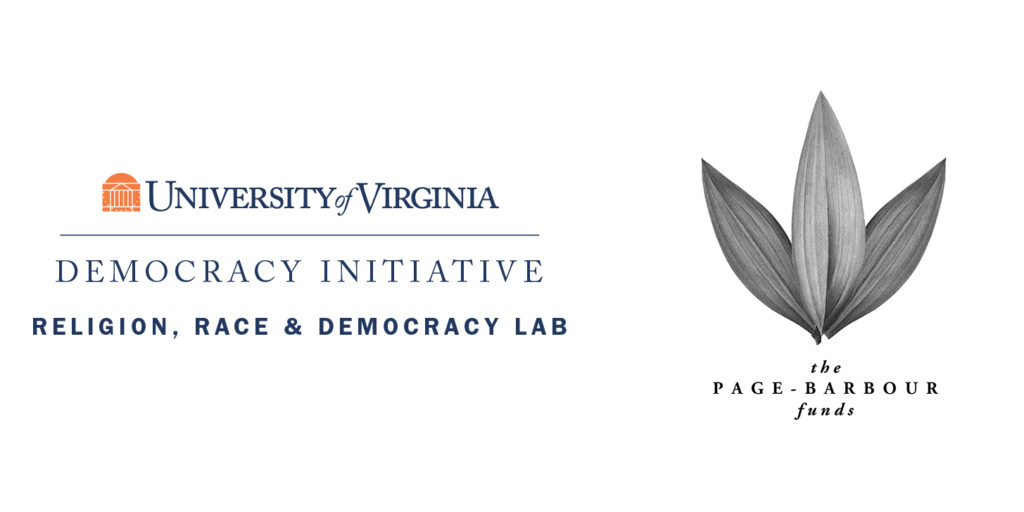A symposium to explore how voice, narrative, rituals, and imagination—from antiquity to present-day—are practiced in the ‘making of ourselves.’
Registration
In-person registration is completely full for the Saturday, April 9th events, but you can still join us on Zoom. Click the orange buttons below.
We are still accepting in-person and virtual registrations for the Tanya Luhrmann lecture.
Schedule of Events
Friday, April 8
11:30 AM–1 PM EST, Rotunda Dome Room
Tanya Luhrmann: Voices
Saturday, April 9
10:30 AM–12 PM EST, Gibson Room, Level 1, Cocke Hall
Sarah Iles Johnston: Narrating Reality in the Ancient Greek Magical Papyri
3:30–5 PM EST, Gibson Room, Level 1, Cocke Hall
Niki Kasumi Clements: Foucault and Practices of the Self in Late-Antiquity
Intellectual Focus
“Our experience of ourselves,” the French philosopher Michel Foucault said, “seems to us, no doubt, to be that which is original and immediate; but we have to remember that it has been constituted through historically formed practices. And what we believe we see so clearly in ourselves…is given to us via techniques.” American writer Ursula K. Le Guin noted that “All of us have to learn how to invent our lives, make them up, imagine them. We need to be taught these skills; we need guides to show us how. If we don’t, our lives get made up for us by other people.” What is true of our experience of ourselves and our lives goes for the worlds we take ourselves to inhabit and experience: the ones we find apparently ready-made for us; the ones we narrate into being and enact in our rituals; the ones we dream ourselves into.
But let’s get serious. To adapt a question a few Buddhist monks once asked an unhappy traveler whose body was swapped with one made from the re-assembled limbs of a corpse after an unlucky run-in with a pair of demons: “What manner of beings are we?” What can we imagine ourselves as being? And how do we make ourselves up?
Over two days an anthropologist (Tanya Luhrmann), a classicist (Sarah Iles Johnston), and a philosopher of religion (Niki Kasumi Clements) will discuss voices, and how people use social practice to shape inner worlds and moral purpose; how ancient handbooks of spells in Greek dating to the first six or seven centuries CE narrate worlds into which one can immerse oneself; and how we might think of the difference between practices, technologies and hermeneutics of self in the work of Michel Foucault.
Parking Information & Event Map
Visitor parking is available at the Central Grounds Garage, located at 400 Emmet Street. The hourly rate is $2.50.
Speakers
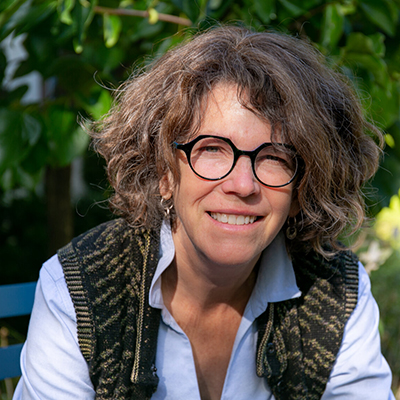
Tanya Luhrmann
Tanya Marie Luhrmann is the Watkins University Professor in the Stanford Anthropology Department. She is a medical and psychological anthropologist, and also an anthropologist of religion. More recently she describes her work as an anthropology of mind. She sets out to understand the way people represent thought itself, and the way those culturally varied representations shape the most intimate experience of life itself. She asks how the world is made real for people, and how that realness shapes a person’s sense of capacity and purpose. She has done ethnography on the streets of Chicago with homeless and psychotic women, and worked with people who hear voices in Chennai, Accra and the South Bay. She has also done fieldwork with evangelical Christians who seek to hear God speak back, with Zoroastrians who set out to create a more mystical faith, and with people who practice magic.
She was elected to the American Academy of Arts and Sciences in 2003 and received a John Guggenheim Fellowship award in 2007. Her book, When God Talks Back: Understanding the American Evangelical Relationship With God (Vintage, 2012) was named a NYT Notable Book of the Year and a Kirkus Reviews Best Book of the Year. She is also the author of Our Most Troubling Madness: Schizophrenia and Culture (University of California Press, 2016) and How God Becomes Real: Kindling the Presence of Invisible Others (Princeton University Press, 2020).
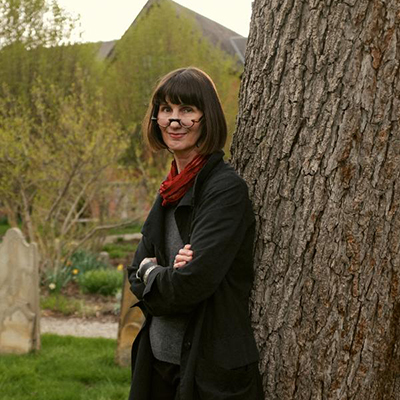
Sarah Iles Johnston
Sarah Iles Johnston teaches courses on religion and Classics at The Ohio State University, where she is the College of Arts and Sciences Distinguished Professor of Religion. For as long as she can remember, she has been fascinated by ancient Greek myths and the characters who inhabit them. Most recently, she has been thinking about how myths, as well as other kinds of stories, can change the beliefs of those who read them or listen to them when they are engagingly composed and vividly performed. Her newest project is Gods and Mortals: Greek Myths Retold (2022), which narrates Greek myths for adults and young adults. Read excerpts from this book and learn about her other projects at her website, www.sarahilesjohnston.com. You can hear an interview in which she talks about some of the ideas that inform her narration, and about her most recent book, The Story of Myth.
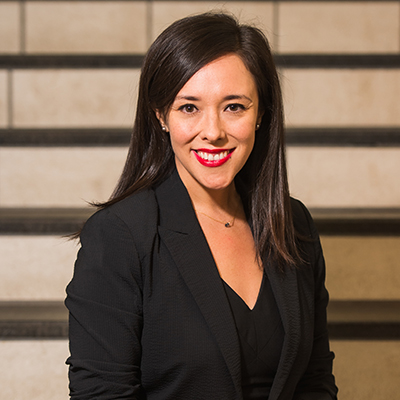
Niki Kasumi Clements
Niki Kasumi Clements is the Watt J. and Lilly G. Jackson Assistant Professor of Religion and the Allison Sarofim Assistant Professor of Distinguished Teaching in the Humanities at Rice University. Dr. Clements is an ethicist working at the disciplinary intersection of philosophy of religion and late ancient Christianity, notably on questions of daily practices, agency, and subjectivity. Clements’s first monograph, Sites of the Ascetic Self: John Cassian and Christian Ethical Formation (2020), approaches these questions through the practical ethics of John Cassian (c.360-c.435), the late ancient ascetic whose views of human ability (departing from his contemporary, Augustine of Hippo) contributed to new forms of life in a shifting empire.
Clements’s research for her second monograph, Foucault the Confessor, engages philosopher Michel Foucault’s fascination with Christianity and ethics through both his published works and the archives at the Bibliothèque nationale de France. The posthumous publication of History of Sexuality, Volume 4, Confessions of the Flesh (2018, trans. 2021) confirms the extent of his engagement with early Christianity and ancient sexual ethics as an art of living; it also confirms just how important the study of religion is for engaging Foucault’s work on subjection, alongside the possibilities for self-formation and challenges to structures of domination.
Influenced by her mentors at Brown University (Ph.D., 2014), Harvard Divinity School (M.T.S., 2007), and Sarah Lawrence College (B.A., 2003), as well as her students at Rice, Clements’s teaching and service share her research attention to recognizing human ability and critiquing structural disparities.
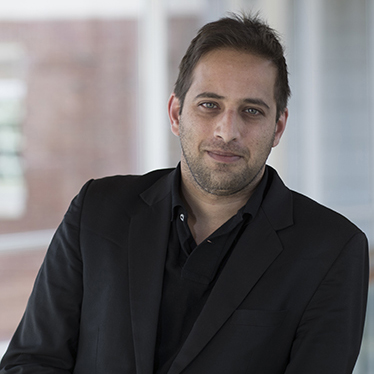
Sonam Kachru
Making Up Selves: The Operating Instructions is organized by Sonam Kachru, Assistant Professor of Religious Studies at the University of Virginia and a faculty partner with the Religion, Race & Democracy Lab, in conversation and collaboration with Andrej Petrovic and Ivana Petrovic (Department of Classics) and Janet Spittler (Department of Religious Studies).
Kachru’s research interests lie in the history of philosophy, with special attention to the history of Buddhist philosophy in South Asia. Topics of particular interest include the philosophy of mind, action and philosophical anthropology. He believes the history of Buddhist philosophy in South Asia is best pursued keeping in view the long conversations of Buddhist and non-Buddhist philosophers in South Asia, and also the importance of narrative thought for the history of ideas.
His first monograph, Other Lives: Mind, and World in Indian Buddhism (Columbia University Press, 2021) offers a new interpretation of the Buddhist philosopher Vasubandhu. You can read more about it here. He is currently working on a book tentatively titled Attention: An Indian Buddhist Story. The book presents the history of Buddhism in South Asia as a history of (sometimes competing) normative paradigms of attention, exploring the ways in which one might think to evaluate mind and consciousness in the context of practices of self. Complementing the project on attention, he has begun a (very) long term project, “Practices of Self in Antiquity: Between Athens and Pataliputra,” guided by the multi-lingual edicts of the Buddhist Emperor Aśoka, which you can hear him talk about on the Religion, Race & Democracy Lab’s podcast Sacred & Profane.
Co-Sponsored by
